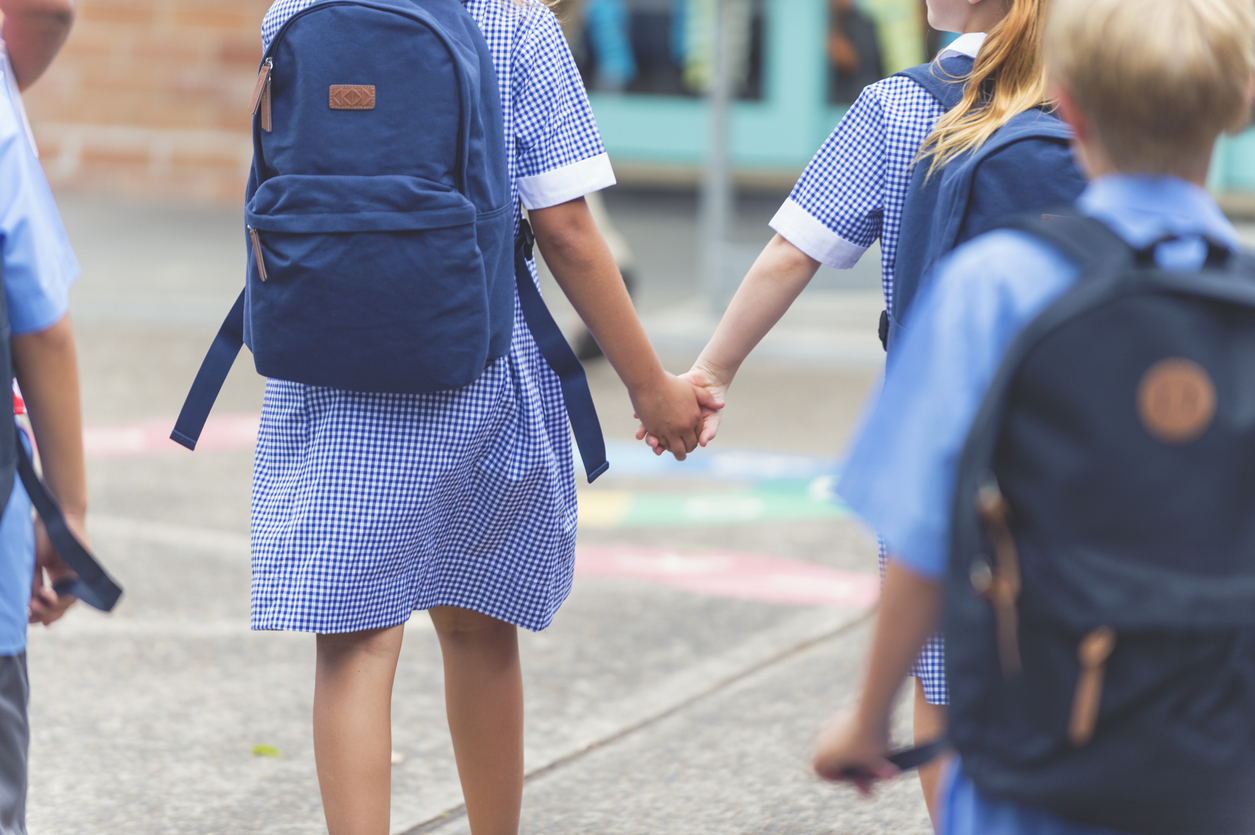
Building friendship skills to reduce bullying
March 15, 2021
The National Day of Action Against Bullying and Violence (NDA) is Australia’s key bullying prevention initiative, connecting schools and communities to find workable solutions to bullying and violence. The key theme, ‘Take Action Together’, will be addressed in many schools on Friday 19 March as children, teachers and parents work together to find solutions to bullying and violence.
Participating in the NDA can help to create positive changes in a school’s culture. The NAD website provided a framework and a variety of approaches to building safe and supportive schools. Along with educating each member of the wider school community about their roles in preventing bullying and violence, much can be achieved by embedding positive relationships in the school culture through the curriculum. For example, having friends is a key element of social learning and successful participation in a school and wider community. Bullying is generally less frequent among children with supportive and close friends.[1] Helping all students to find friendship requires strong school leadership to build a school community that demonstrates empathy, respect and tolerance for others.
Having at least one friend
Children with no friends are more likely to be harmed by experiences of victimisation and rejection[2] and are more likely to suffer from depression and anxiety than those who have at least one friend. Having just one supportive, loyal, trustworthy friend promotes the development of psychological resilience.[3] It helps play a protective role when managing difficult relationships with a peer or peer group.
Friendship is not universal
For many children, making and keeping friends is quite effortless, but for some it is a challenge. Sadly, about one in ten school-age children have no friends and are disliked by most of their classmates.[4] Unfortunately, in the twenty-five years since this statistic was reported, one in five of today’s adults aged 23-38 years, report having no friends, with nearly one in three reporting ‘no close friends’.[5]
Supporting the child who has friendship difficulties
Teachers can play a vital role in fostering the acquisition and development of friendships amongst their students. Appreciating the nature and importance of friendship and implementing strategies to support children experiencing friendship difficulties will enable teachers to be more effectively foster student learning and wellbeing. Children who feel safe, included and liked are more open to sharing, listening and achieving academically.
The Psych4Schools Friendship difficulties package assists teachers, parents and children to support children who find friendship challenging to develop the skills they need to make and maintain good friendships. This package of six website resources is available only to Psych4Schools members.
Teacher resources
- ebooklet: Working with children who have difficulty making friends
- Classroom activities: Social skills for children with additional needs
- Behaviour support strategies: Helping children with no friends or few friends
- One-to-one survey: Making friends questionnaire (Year 3 to Year 8)
Student resource
- Classroom group activities: Social Skills Dice
Parent resource
- Advice and planning: What parents can do to help their child with friendships
When to seek further assistance
A psychologist or senior staff member should be consulted when:
- Peers are afraid of or repeatedly reject the child.
- Parents regularly seek you out over concerns about their child’s friendship/s.
- The child is lacking in social or communication skills.
- The child is increasingly angry or withdrawn over a period of two to four weeks.
Referral to a psychologist, or speech pathologist for language and communication issues (with parent consent) can assist the child to learn appropriate skills, to feel happier and more confident, and build resilience.
Who is at risk?
The following groups of children may have difficulty making and keeping friends. However, this is not necessarily the case, and the ability to establish and maintain friendships may be a strength for some of these children. Friendships may be an issue for children who:
- Have learning, communication and/or attention difficulties
- Have an intellectual disability
- Have a teacher’s aide in the classroom or playground
- Are angry or aggressive
- Are bossy, mean, annoying, hurtful or arrogant
- Are overweight or obese
- Are anxious and depressed
- Are shy
- Frequently lie
- Identify as lesbian, gay, bisexual, transgender, intersex and questioning (LGBTIQ)
- Have multiple absences from school
- Bully other children
- Are gifted
- Are perceived as different from school community norms.
The ebooklet, Working with children who have difficulty making friends is available for non-members for individual purchase from the shop.
Not a member? Join Now.
Thinking about subscribing? Click here for Free Resources for working with children.
Need further information? Contact us via the website or directly by email: info@psych4schools.com.au
Murray Evely, Psych4Schools Psychologist/ Guidance Officer
[1] Navarro, R., Yubero, S., and Larranaga, E. (2018), A Friend is a treasure and may help you to face bullying. Frontiers for Young Minds. https://kids.frontiersin.org/article/10.3389/frym.2018.00014
[2] The power of friendship: Protection against an escalating cycle of peer victimization.
Hodges, Ernest V. E.; Boivin, Michel; Vitaro, Frank; Bukowski, William M.
Developmental Psychology, Vol 35(1), Jan 1999, 94-101. dx.doi.org/10.1037/0012-1649.35.1.94
[3] Graber, R., Turner, R. and Madill, A. (2015), Best friends and better coping: Facilitating psychological resilience through boys’ and girls’ closest friendships. British Journal of Psychology. doi: 10.1111/bjop.12135
[4] Asher, S.R., and Williams, G.A., (1996) Children without friends, Part 1: Their problems, research for the National Network for Child Care’s Connections Newsletter. Webshare.northseattle.edu/fam180/topics/socdev/Children%20wofreinds1.htm
[5] Resnick, B., Loneliness can be helpful, unless it becomes chronic.Vox. https://www.vox.com/science-and-health/2019/8/1/20750047/millennials-poll-loneliness